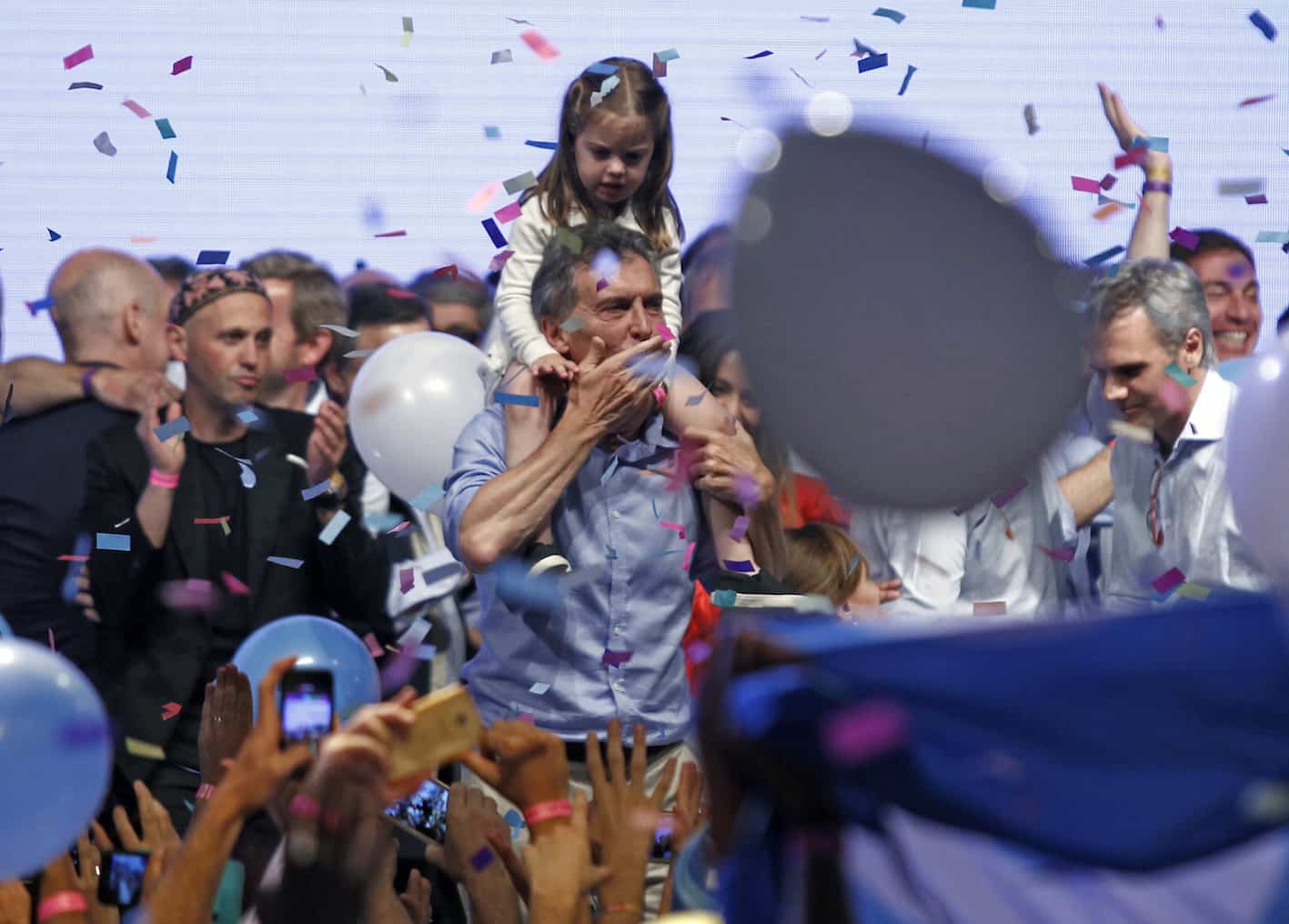With a dashing smile under his piercing blue eyes, the graying 56-year-old channeled discontent among Argentines fed up with the hands-on economic policy of outgoing President Cristina Fernández de Kirchner.
In the runoff vote, Macri was the favorite candidate of big businesses and foreign investors alienated by Kirchner’s abrasive approach and protectionist policies.
He has proposed easing restrictions on imports and dollar transactions and liberalizing the economy after 12 years of rule by the Peronist movement that has dominated Argentine politics for decades.
A social conservative, he opposed the legalization of gay marriages in Argentina in 2010, firmly opposes abortion and once criticized what he called “uncontrolled immigration” in the country under Kirchner.
The twice-divorced father of four rose to fame as the president of Argentina’s most popular football club, Boca Juniors.
“I wanted to be Boca’s number nine” striker, he once said. Instead, he led in the boardroom during the team’s most successful period, seeing it win 17 titles.
That powerful position catapulted him into politics. He founded his Republican Proposal alliance, known as PRO, in 2005.
The mayor of Buenos Aires since 2007, Macri led a movement called “Let’s Change” aiming to roll back policies that Kirchner says help the working class but business leaders say wrecked economic growth.
Life of privilege and drama
Macri was born in Tandil, a city in an eastern agricultural region, and previously managed his father’s firm.
He is married to model and fashion entrepreneur Juliana Awada — a friend of rival Daniel Scioli’s wife — with whom he has a three-year-old daughter. He has two other children from a previous marriage.
Son of a rich businessman and educated at the elite Cardinal Newman College in Buenos Aires, Macri had to tread carefully in a country with a loaded history of class conflict. But he drew leaders of various political stripes to his cause, including Peronists and social democrats as well as right-wingers.
In last month’s first-round vote, he surprised pollsters by finishing close behind his opponent, Kirchner’s ally Scioli, and seized the momentum as the vote headed to a runoff.
Macri crisscrossed the country’s poorest provinces, hugging children and grandmothers and promising not to take away anyone’s social benefits but give them the chance to work.
Hailing his victory on Sunday, he said he was working “to help Argentines be a bit happier each day.”
His life has been marked by dramas and scandals. In 1991, he was kidnapped and freed two weeks later after his family paid a $6 million ransom.
Macri was cleared of smuggling charges in the 1990s and overcame accusations of links to groups of Boca football hooligans.
In a more recent case, he faced accusations that he spied on opponents.
His style has been compared to that of Republican politicians in the United States.
At colorful campaign rallies, he has released yellow balloons, danced the Argentine “cumbia” and imitated the singer Freddie Mercury, a gay icon.
He has vowed to liberalize the economy, but the contest against Scioli also forced him to face up to voters’ social demands. Scioli branded Macri a “stuck-up” elitist.
“In the past. he was just right-wing and proud of it,” sociologist Federico González told AFP.
“Now he is like Buddha. He went out of his palace and discovered misery and sickness.”






